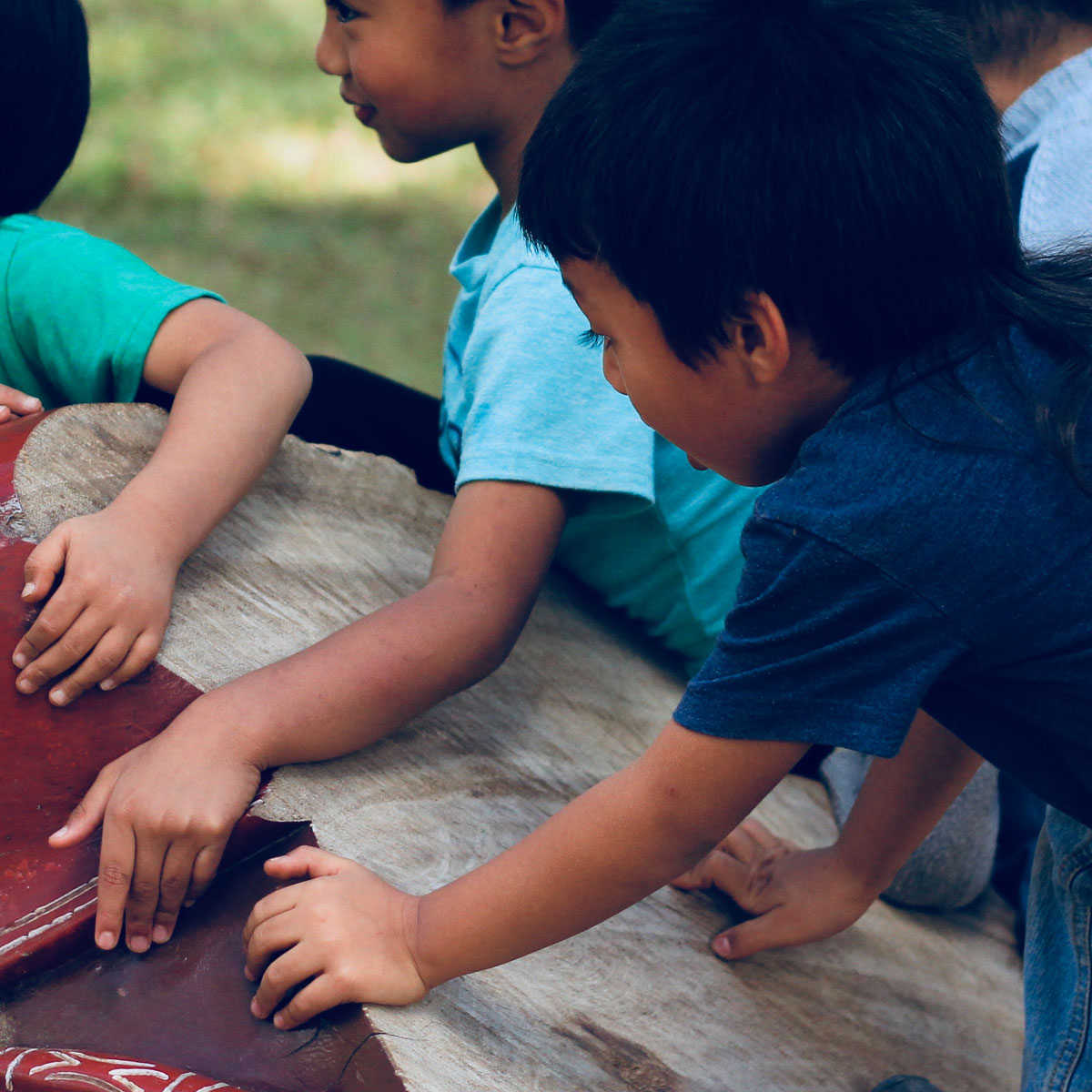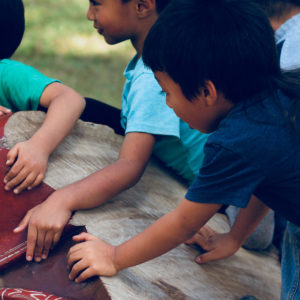Column: Musings on Home
By Lissa Romero de Guia
The gift of a no-school day is that some parents get to sleep in a little later than usual. One morning a few days ago was one such day, with classes called off due to the inclement weather. My alarm switched off, I contentedly slept past my usual 7 a.m. wake up call.
I’m sure I could have slept well past 8 a.m. too, but I am a light sleeper, and I heard my son get up and leave the room we all share to play in the sala. He crept back inside, while I tried to stay asleep. I heard him whisper to his sister, in the process waking her up. This would normally annoy her, but he pre-empted that by saying, “Mimi, look. This is how elephants show their love, by shooting water out of their trunks! Peuw, peuw, peuw!” He held up his blue stuffed toy elephant, and Mimi said, cheerfully, “I love you, Elephanty!”
The two crawled off the mattress together.
“Mimi, let’s go to the toilet first!”
“Okay, brother,” Mimi replied.
My eyes still closed, I heard Kuya Kalinaw encourage her to be first on the toilet. When she was done peeing, I hear him rip some toilet paper off the roll so she could wipe herself. Then he said, “It’s my turn!” He flushed, then they washed their hands, and Kalinaw exclaimed, “Hey, Mimi, you can reach the faucet already! You don’t need the step anymore. You’re growing so fast!” Mimi’s pleased laugh tinkled clear as a bell above the sound of running water.
As they crept out of the room, I just lay there, feeling so utterly grateful to have overheard all of that. My heart was full to bursting in my chest, knowing that my children love and adore one another. And I also felt a sense of pride in seeing that six-year-old Kalinaw is a caring older brother to four-year-old Mimi.
My husband and I try our best to be good parents to our children, and I’m sure that despite our many shortcomings, we are able to show some facet of love to them. Yet I can confidently say that the way in which my son cares for his little sister also has a lot to do with the school they go to, Balay Sofia.
Balay Sofia is the only Waldorf school in Baguio. Austrian philosopher Rudolf Steiner established the first Waldorf school in Stuttgart exactly 100 years ago, in September of 1919. After the horrors Europe experienced during the First World War, Steiner saw a need for spiritual and social renewal. At the request of Emil Molt, the owner of the Waldorf Astoria cigarette factory in Stuttgart, Steiner established Die Freie Waldorfschule for the children of the Waldorf Astoria factory workers.
Waldorf education is based on Anthroposophy, the science of understanding the spiritual nature of man. Developed by Steiner over a 40 year period, he applied it to nearly every aspect of human life aside from education (biodynamic farming is one of anthroposophy’s offshoots). I learned more about it by attending the free talks sponsored by our school, as well as PTCs and school general assemblies.
The more I learned, the more I fell in love with this education of the “head, hands and heart.” By understanding the three-fold nature of man as soul, mind and body, and honoring the different ways a child learns in each of the first three 7-year cycles of life (0-7, 7-14, 14-21 years old), children in a Waldorf school are cherished, protected and guided, in the hope that they will grow to be responsible, compassionate and truthful human beings. By giving children a way to discover and express their authentic selves, perhaps they can lead meaningful lives by creating a healthier, more beautiful world.
I caught a glimpse of such a world on that lazy, no-school-day morning, when I witnessed the gentle and loving way my son took care of his little sister.
“The school is not just educating my son…it is also educating me, helping me become a better person,” shared my co-parent Michelle Tan-Dance. I couldn’t agree more.
Today, we live in challenging times. The world is literally on fire, our last remaining forests and jungles going up in smoke. We are experiencing a climate crisis. Technology is developing faster than our minds can compute their impact on society. Totalitarianism is making a comeback, impinging on our human rights.
Now, more than ever, we need to step up. Rather than harden our hearts or brace for the inevitable impact, we need to be vulnerable and bring the spiritual back into our daily work. Rather than teach our children to be more competetive (to the detriment of their sanity and wellbeing), we need to teach them to be kind to themselves and others, to be in service of their fellow man. Rather than curse the darkness that surrounds us, we need to remember that our very nature is light.
As Sarah Mae Sabado, a long-time Waldorf parent-leader, put it, “This is what we want every member of the community to experience: to really learn to go beyond the physical and the immediate, to learn to see the big picture, and the eternal.”
There are about 1,000 Waldorf schools in 60 countries. Balay Sofia is nine years old, still a baby in the Waldorf school’s 100-year history, but it is growing. This September, it is moving to De Vera Homes (Justice Village), a newly renovated property that will give the school plenty of room to grow. Now with two kindergarten classes and students from grades one to five, the goal is to eventually offer a full K to 12 Steiner-Waldorf program (and yes, it is Dep Ed approved). In this new and nurturing environment, we hope to bloom souls that will be more than resilient—they will be at the leading edge of a regenerative culture.
(For those who would like to learn more about Waldorf education, there will be a free public orientation on September 14, 9 a.m. to 11 a.m. at Balay Sofia, #9 Navy Base Extension Road. For inquiries, you can send an email to balaysofia@gmail.com. Enrollment is still open for the Early Childhood Education program.)

